Best winter pansies – 8 varieties to add seasonal color to your winter garden
Plant some of these best winter pansies to fill your garden with much needed color and interest

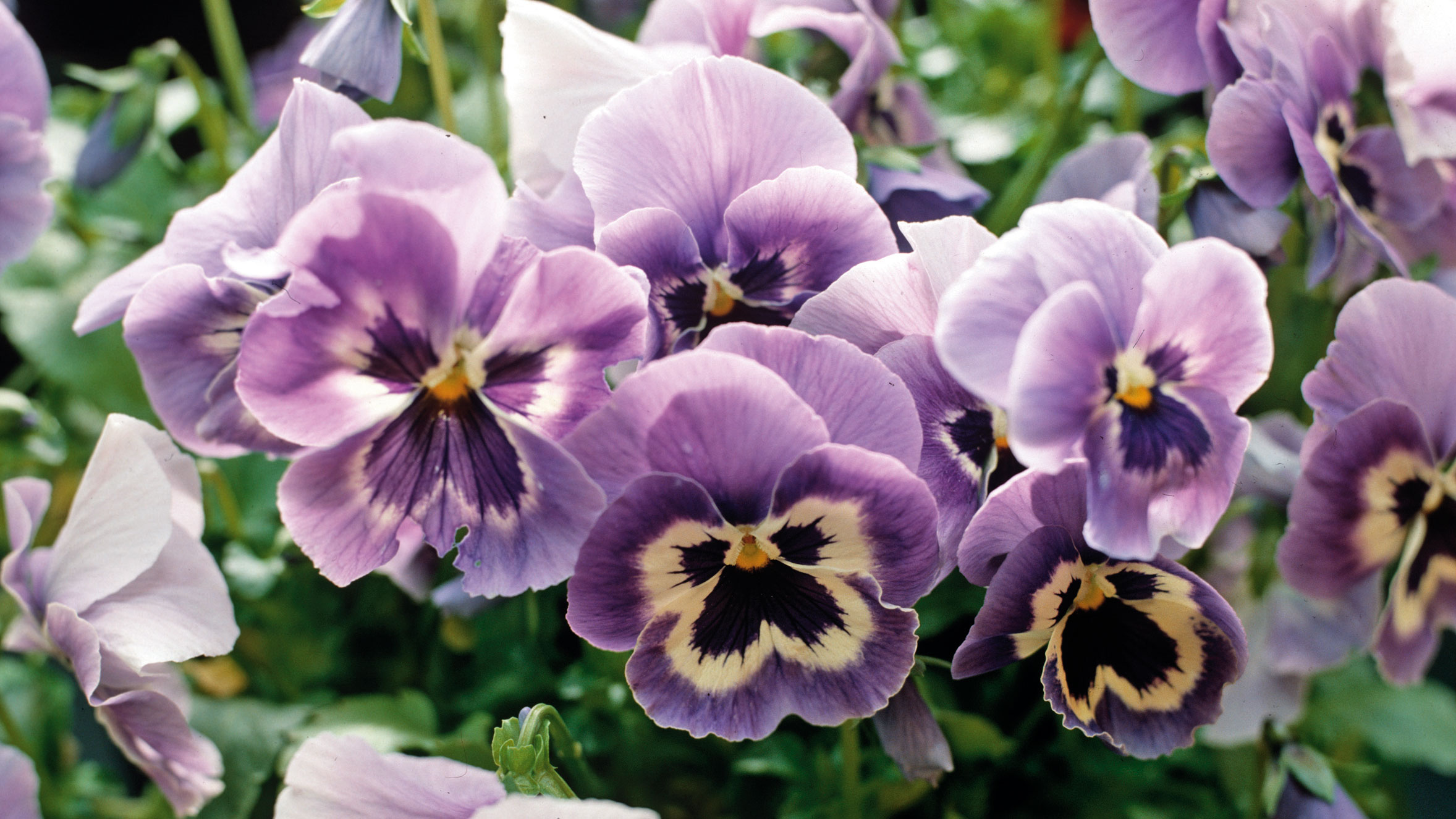
Design expertise in your inbox – from inspiring decorating ideas and beautiful celebrity homes to practical gardening advice and shopping round-ups.
You are now subscribed
Your newsletter sign-up was successful
Want to add more newsletters?

Twice a week
Homes&Gardens
The ultimate interior design resource from the world's leading experts - discover inspiring decorating ideas, color scheming know-how, garden inspiration and shopping expertise.

Once a week
In The Loop from Next In Design
Members of the Next in Design Circle will receive In the Loop, our weekly email filled with trade news, names to know and spotlight moments. Together we’re building a brighter design future.

Twice a week
Cucina
Whether you’re passionate about hosting exquisite dinners, experimenting with culinary trends, or perfecting your kitchen's design with timeless elegance and innovative functionality, this newsletter is here to inspire
The best winter pansies come in a huge range of colors and combinations to fill your winter garden with much needed color and interest.
All pansies are part of the viola family and they bear many similarities, although pansy flowers are larger, whereas violas produce smaller but more plentiful blooms.
Easily out blooming any other winter flowering bedding plant, winter pansies and violas are a joyous sight in the garden in the coldest and darkest months. It's easy to learn how to grow pansies, and they offer a vast variety in shades, often bicolored combinations, and patterns across their heart shaped petals, making them a plant lover's dream and wonderful addition to winter garden ideas as they are among the best winter plants for pots and borders.
Best winter pansies to plant
If you're planning a winter garden, you should definitely include these low growing perennials in your planting plans. Winter pansies and violas can be added to flower beds and borders, used for container gardening ideas and are also among the best plants for hanging baskets.
Winter pansies have been bred to withstand cooler temperatures and bloom in the colder months. Know when to plant pansies to get the most from these delicate little blooms and extend the flowering season for as long as possible.
'Winter pansies, Viola x wittrockiana are a popular fall flower because they are easy to grow and offer a wide range of colors. Violas are similar in shape and coloring but smaller and have more blooms than pansies. Both do well in colder temperatures,' explain the experts at Patuxent Nursery.
The cheery flowers will bring a smile to your face and, in fact, ‘the fascinating markings on these pretty plants are reminiscent of smiling faces,’ says plantswoman Sarah Raven.
Design expertise in your inbox – from inspiring decorating ideas and beautiful celebrity homes to practical gardening advice and shopping round-ups.
‘Their love of cool conditions makes them ideal for shady gardens,’ says Sarah. These deceptively hardy beauties will then keep plucking at your heartstrings through winter.
Plant some of these best winter pansies and violas in your garden.
1. Heart’s Ease, Viola tricolor
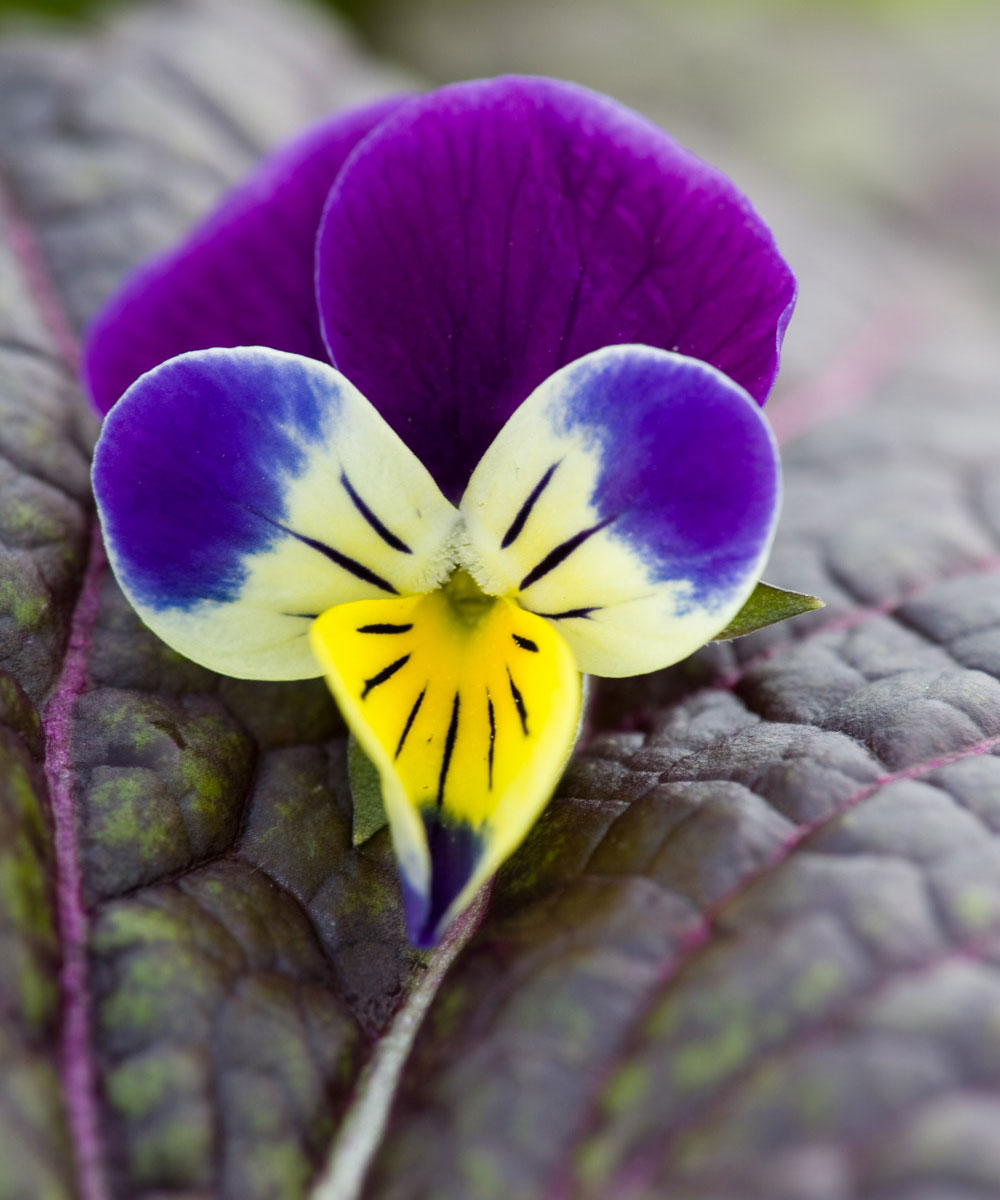
Viola tricolor, Heart's Ease, is Sarah Raven's favourite edible flower, with delicate purple, cream and yellow petals. And if you're running late with sowings, don't worry, as these delicate little winter pansies can be sown and grown almost any month of the year, Sarah advises. Learn how to deadhead pansies to keep them blooming for longer.
2. Viola x wittrockiana Matrix Solar Flare
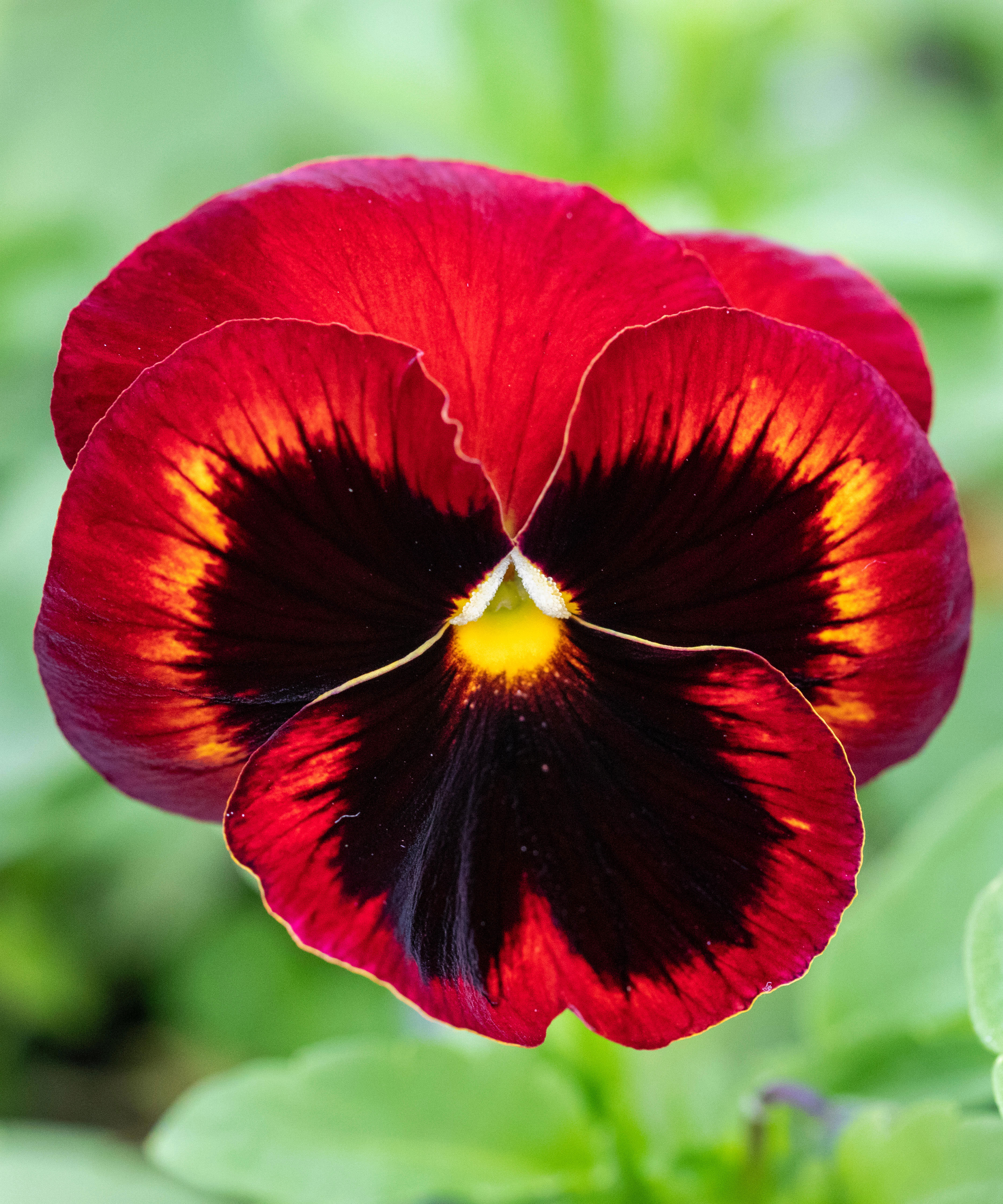
Viola x wittrockiana Matrix Solar Flare are large flowered pansies that have been bred to give outstanding performance and produce a blaze of fiery colors, from reds and oranges merging into yellow, explain the experts at Brookside Plant Nursery.
While you can position them in full sun, like all winter pansies, they prefer partial shade so are good options as shade plants.
They can bloom from September through winter depending on the hardiness zone where you live and when they are planted.
3. Viola cornuta ‘Tiger Eye Red’ F1
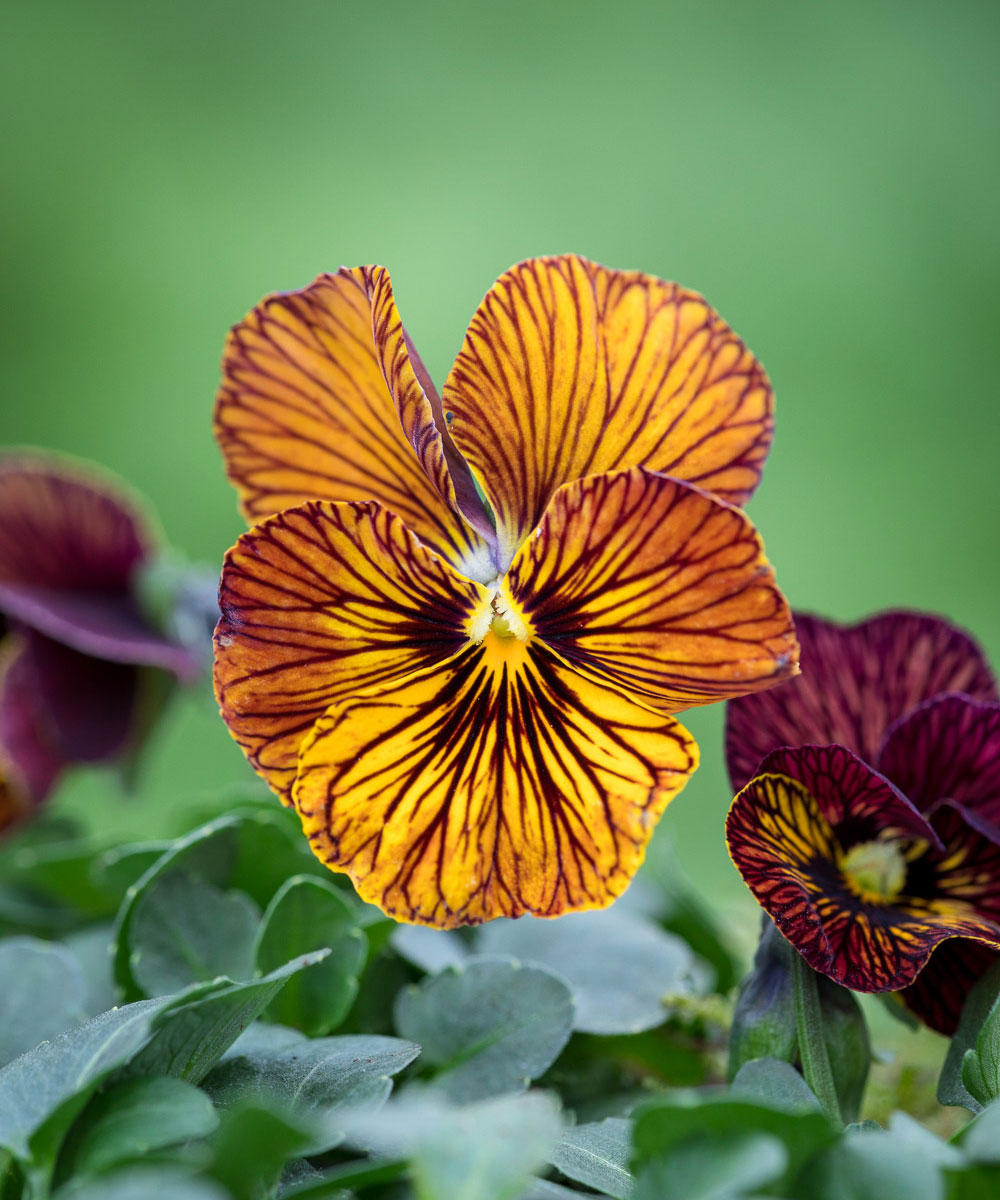
Viola cornuta ‘Tiger Eye Red’ F1 are 'prolifically cut-and-come-again, and keep on flowering for months at a stretch,’ says Sarah Raven.
These winter pansies make some of the best-ever small table center pot fillers, she adds, and are also a great bloom to use if you're learning how to press flowers.
4. Viola cornuta ‘sorbet yellow’
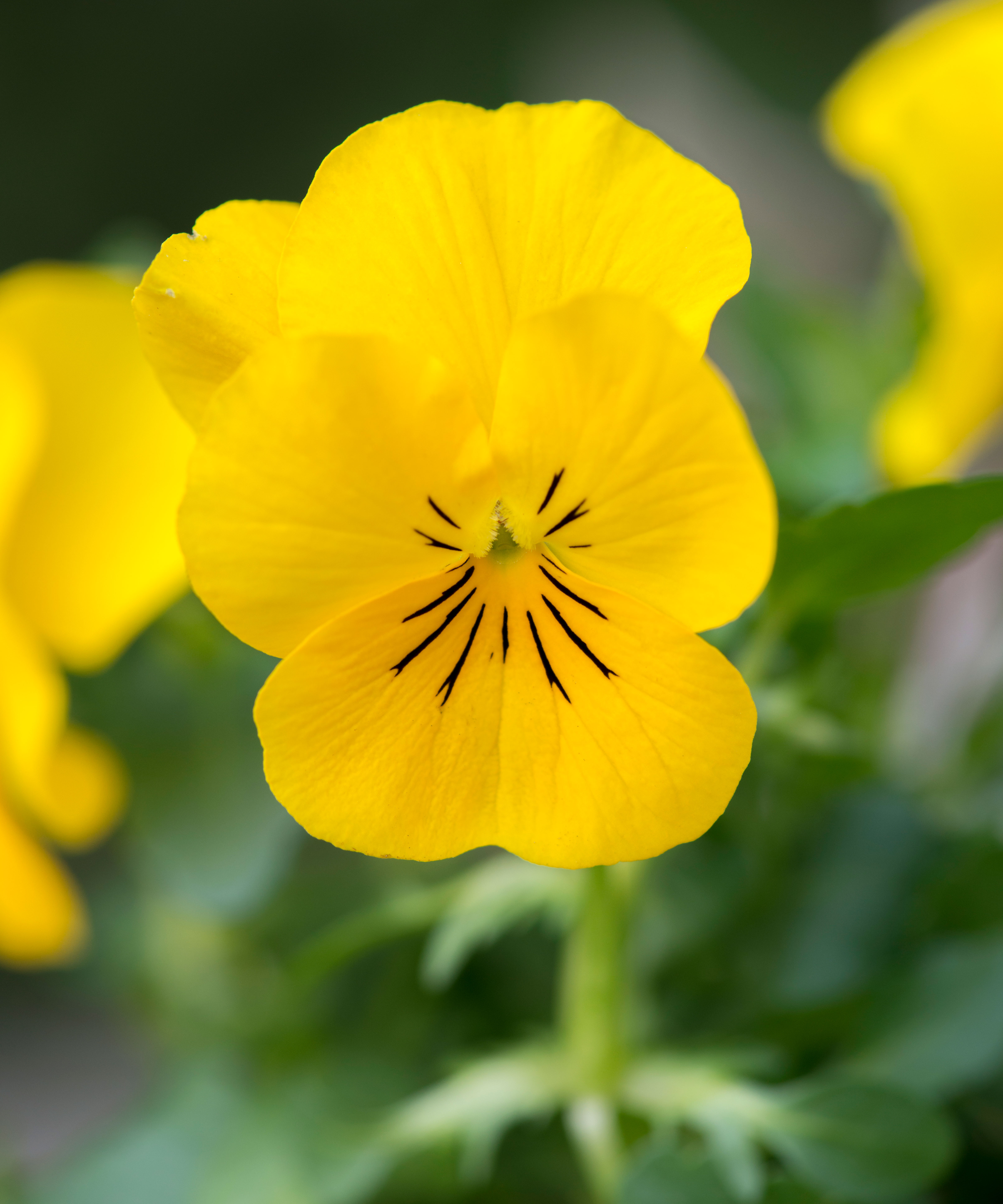
Viola cornuta 'sorbet yellow' is among the modern varieties of winter pansies and violas, and the compact plants will become smothered in 1 inch blooms.
'A weather tolerant option in a bright color, it is perfect for edging garden borders or planting in pots and winter hanging basket ideas, say the experts at Brookside Nursery.
If you're wondering how to plant a flower bed, add these low growing blooms at the front of the border where they won't be lost among other flowers and foliage.
5. Viola cornuta ‘deltini honey bee’
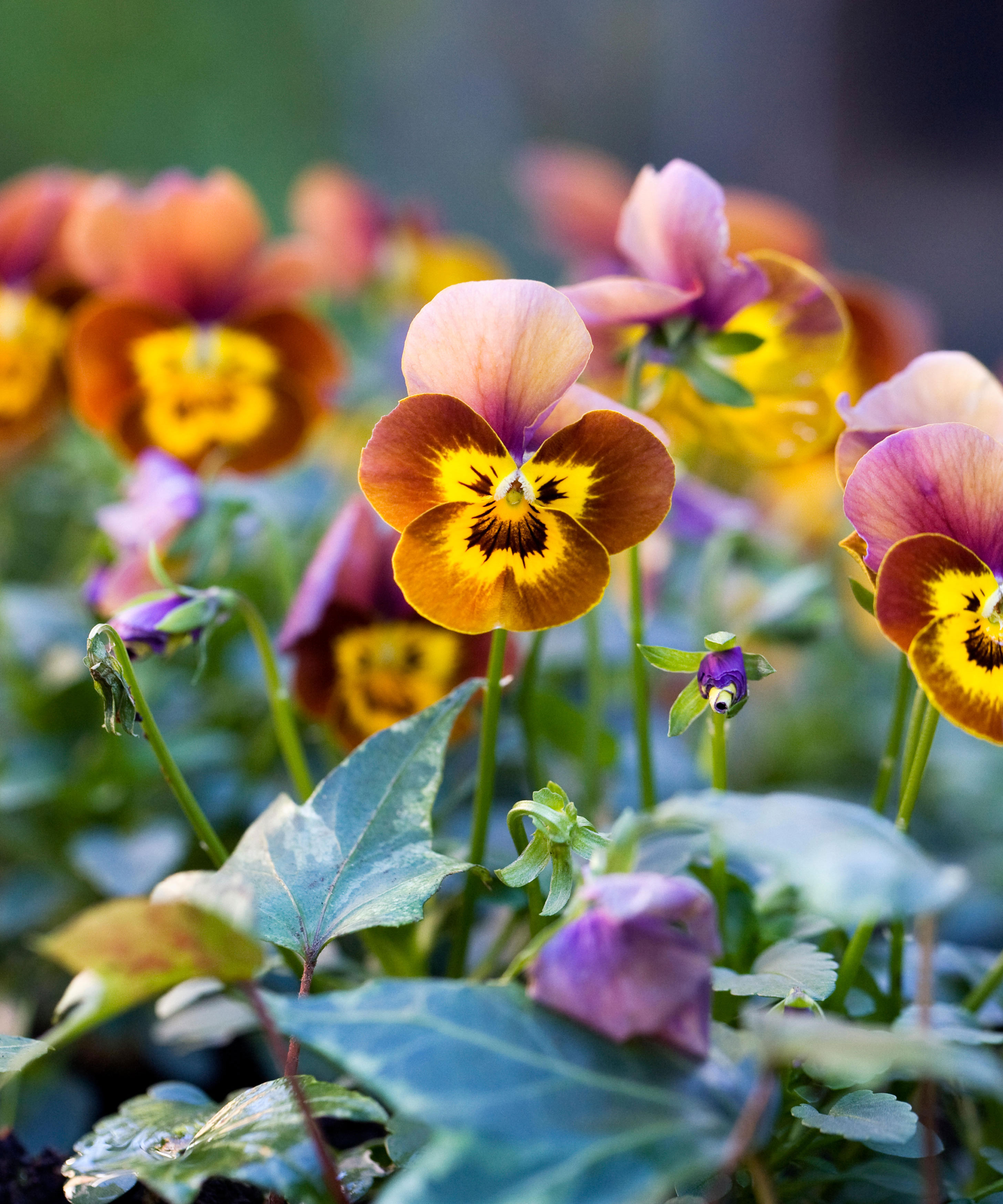
Winter pansies and violas are among the best winter flowers, adding much needed color when most of the garden is bare, whether populating beds or singing out from pots, such as the joyous golden and bronze patterned blooms of Viola cornuta ‘deltini honey bee’.
This variety is 'ideal for winter flowering in the South and West, and early spring in the North,' explains the experts at Syngenta Flowers
These winter pansies will be covered with masses of flowers, slightly smaller in size than some other varieties.
6. Viola x wittrockiana 'Peach Shades' F1
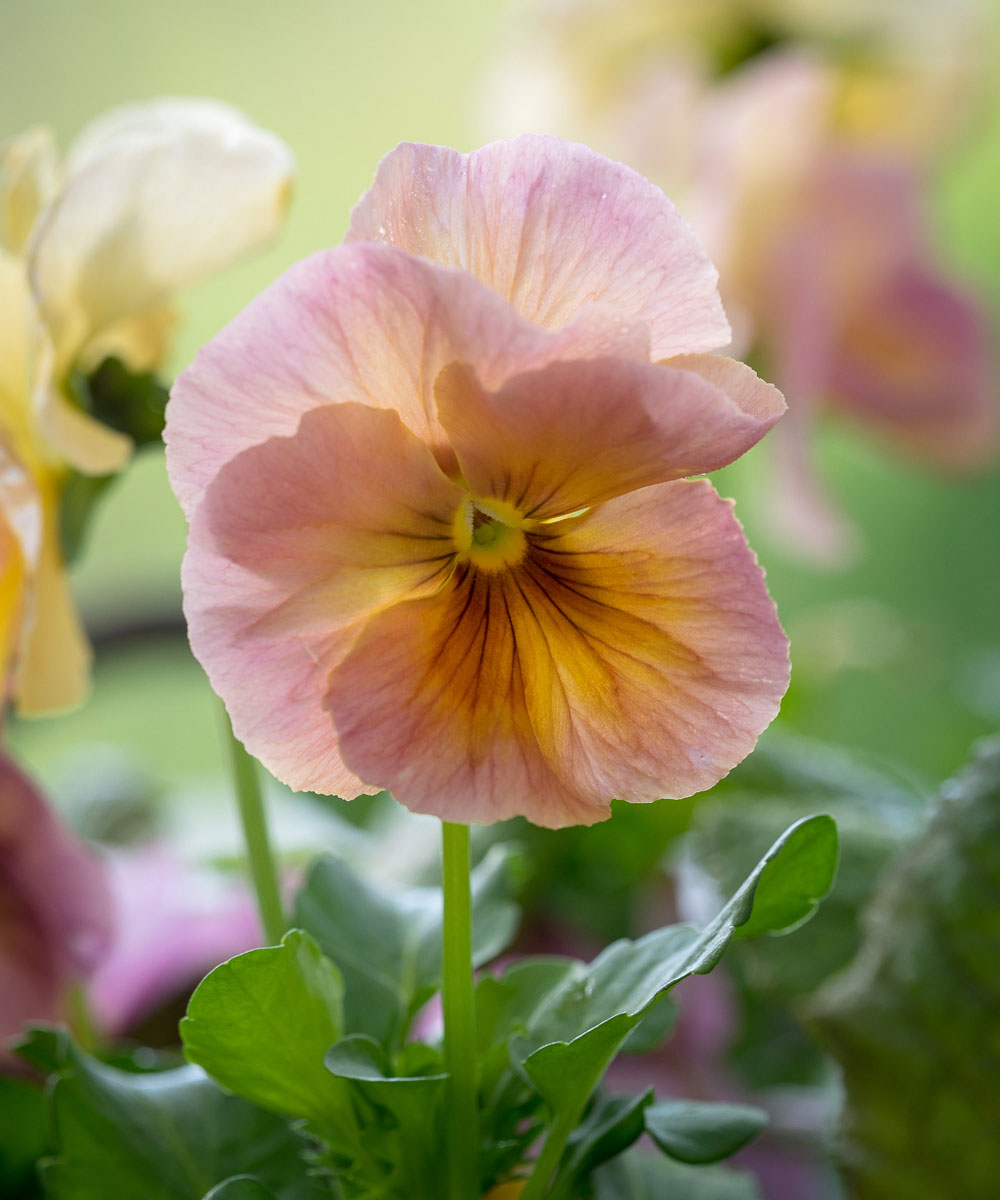
Viola x wittrockiana 'Peach Shades' F1 is a mix that brims with warming, soft colours. ‘It’s one of my favourite container plants,’ says Sarah Raven.
These winter pansies will flower in a sheltered spot from late winter all the way through to spring, and are lovely picked and added to floral arrangements.
Their gentle shades will complement many garden color schemes if they are grown throughout the year.
7. Viola cornuta ‘White perfection’
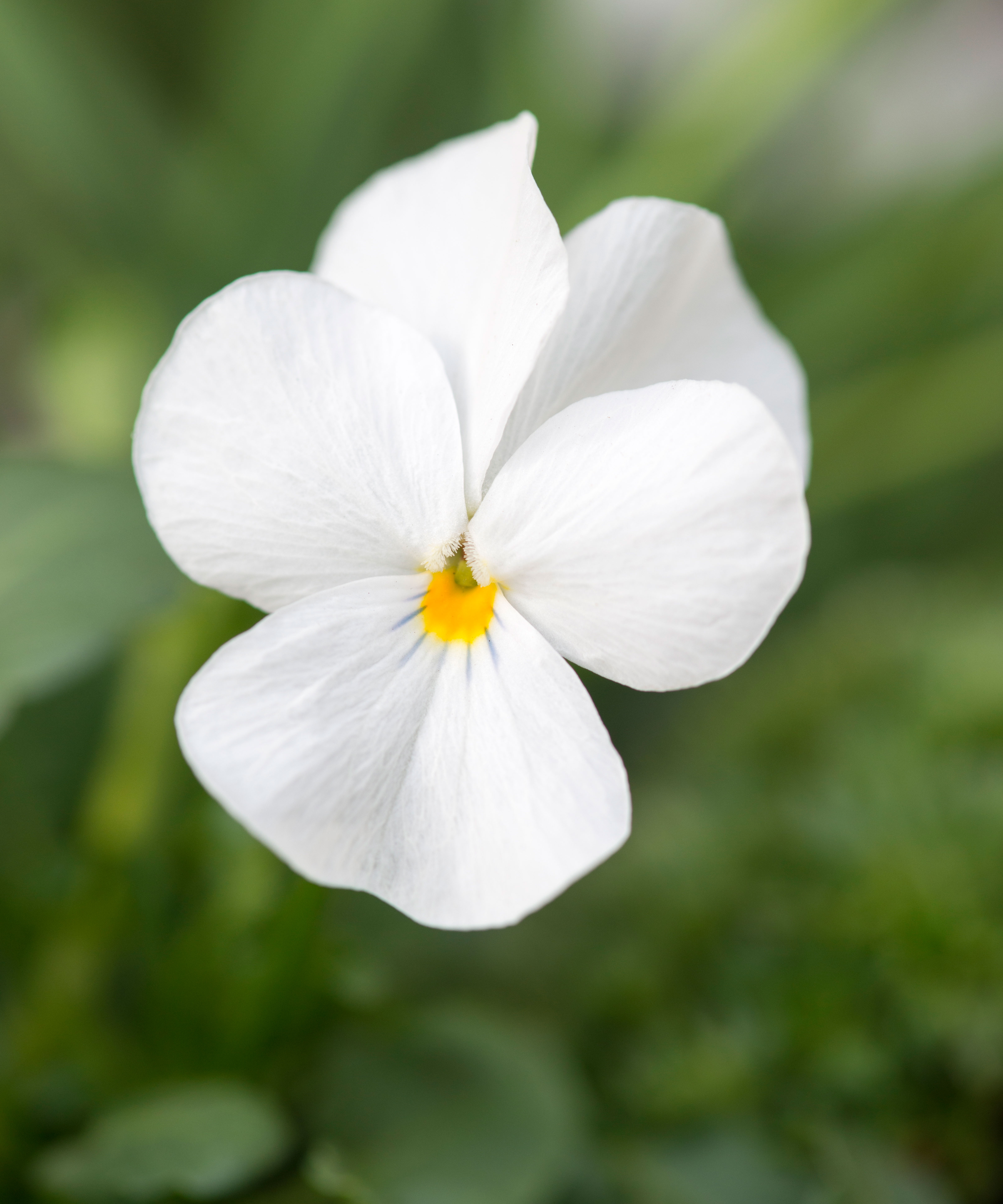
Viola cornuta ‘White perfection’ are very hardy and grow to about 6in (15cm) tall, with beautiful, large, ruffled flowers in a pure, pristine white.
'They bring cheer to any garden, and never fall out of favour,' explain the experts at Rangeview Seeds.
These winter pansies will flower for long periods and look delightful as edging and rockery plants. Added to which, 'they have an amazing, memorable scent,' say the Rangeview Seeds experts, so are a good winter addition as sensory garden plants.
8. Viola x wittrockiana Matrix Yellow Blotch
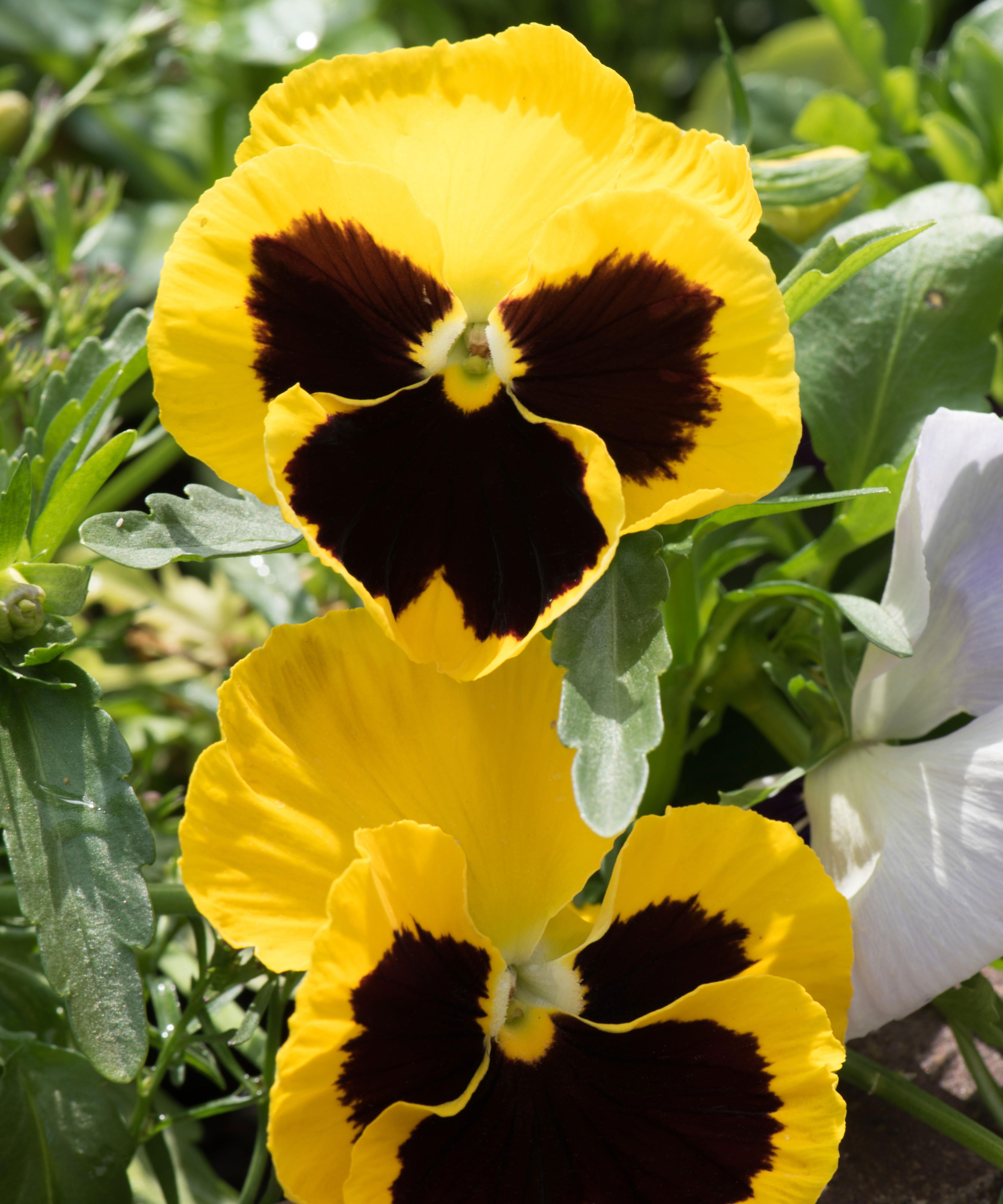
Winter pansy Matrix Yellow Blotch has large, bright yellow flowers with an attractive central blotch.
This series retains winter pansies’ wonderful cold tolerance, but can also withstand warmer weather and remain well branched and floriferous.
They can bloom from fall through to spring, and produce more flowers per plant than other pansies. It is a hard one to beat for uniformity of timing and plant habit.
What month do you plant winter pansies?
The best month to plant winter pansies depends on how early and how long you want them to start flowering.
The earlier winter pansies are planted, in September or October, the bushier the flowers they produce, which will last throughout winter; however, you can continue to plant them into late fall and winter.
You can start off seeds in mid to late summer to transplant in September or October. Plant seedlings 20cm apart in containers or flower borders and water well.
How late can you plant winter pansies?
You can keep planting winter pansies through the winter months and they will bloom into spring, depending on the variety, when they are planted and the climate where you live.
Planting winter pansies in late fall and winter will result in a riot of spring flowers, and they will just take a little longer to bloom.
Rachel is senior content editor, and writes gardening content for homesandgardens.com, Homes & Gardens magazine, and its sister titles Period Living Magazine and Country Homes & Interiors. She has written for lifestyle magazines for many years, with a particular focus on gardening, historic houses and arts and crafts, but started out her journalism career in BBC radio, where she enjoyed reporting on and writing programme scripts for all manner of stories. Rachel then moved into regional lifestyle magazines, where the topics she wrote about, and people she interviewed, were as varied and eclectic as they were on radio. Always harboring a passion for homes and gardens, she jumped at the opportunity to work on The English Home and The English Garden magazines for a number of years, before joining the Period Living team.
